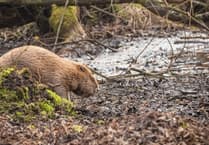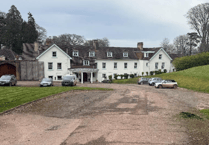FARMERS across West Somerset, the Quantocks, Brendon Hills and Exmoor have been put on alert after an outbreak of the potentially fatal animal disease bluetongue was confirmed in Dorset. The whole of Somerset and also Devon are now within Defra's surveillance zone after vets confirmed a fresh case of the disease near Poole on Wednesday. Previously, only the south and north of Somerset had been affected by a surveillance zone, which was imposed after an outbreak of the disease in the South East. Bluetongue, which is harmless to humans, was first confirmed in the UK in East Anglia at the end of September last year. The virus is spread by a species of midge and most severely affects sheep, although cattle are the main carriers. Other ruminants including deer, goats, camels, alpacas and llamas are also affected, although the disease does not affect horses, pigs or dogs. A Somerset County Council spokesman said yesterday (Thursday): "Movement of animals solely within the surveillance zone is permitted. "However, if livestock keepers want to move sheep, cattle, deer, goats or camelids from a holding inside the surveillance zone to a holding or market outside of the zone, they must follow DEFRA guidance on testing of animals and other biosecurity and cleansing measures. "Markets will be taking place as usual in Somerset, but with strict adherence to the restrictions on livestock movements. "Bluetongue poses no risk to human health and it does not affect dogs or horses. There are no restrictions on dog walking or horse riding, and no closure of footpaths, because of Bluetongue." Cllr Jim Mochnacz, the council's portfolio holder for trading standards said: "This is a difficult time for Somerset's farming community, but it is vital that we all work together to control the spread of Bluetongue. "Somerset's animal health and welfare team will do whatever they can to minimise the disruption these new restrictions will cause and will continue to help local farmers." Farmers within the surveillance zone are being asked to keep a close eye on their stock for signs of the virus, particularly by checking the lining of their animals' mouths and noses and the coronary band - the area where an animal's hoof stops and skin starts. A blue tongue is rarely a clinical sign of infection. If a farmer's flock of sheep is infected, up to 70 per cent of his animals could die from the disease, while those that survive are likely to have reduced meat and wool production. Signs in sheep include: l Eye and nasal discharges. l Drooling as a result of ulcerations in the mouth. l High body temperature. l Swelling of the mouth, head and neck. l Lameness. l Haemorrhages into or under the skin. l Inflammation at the junction of the skin and the horn of the foot. l Respiratory problems. Signs in cattle include nasal discharge, swelling of the head and neck, conjunctivitis, swelling in and ulceration of the mouth, swollen teats, tiredness and saliva drooling out of the mouth. As well as the surveillance zone, Defra has also set up a new protection zone directly around the infected premises. Animals within the protection zone can only be moved under licence with a vet's permission. Anyone who suspects their animals may be showing signs of the disease should contact the local animal health office on 01823 337922 or call Defra on 0845 335577.



